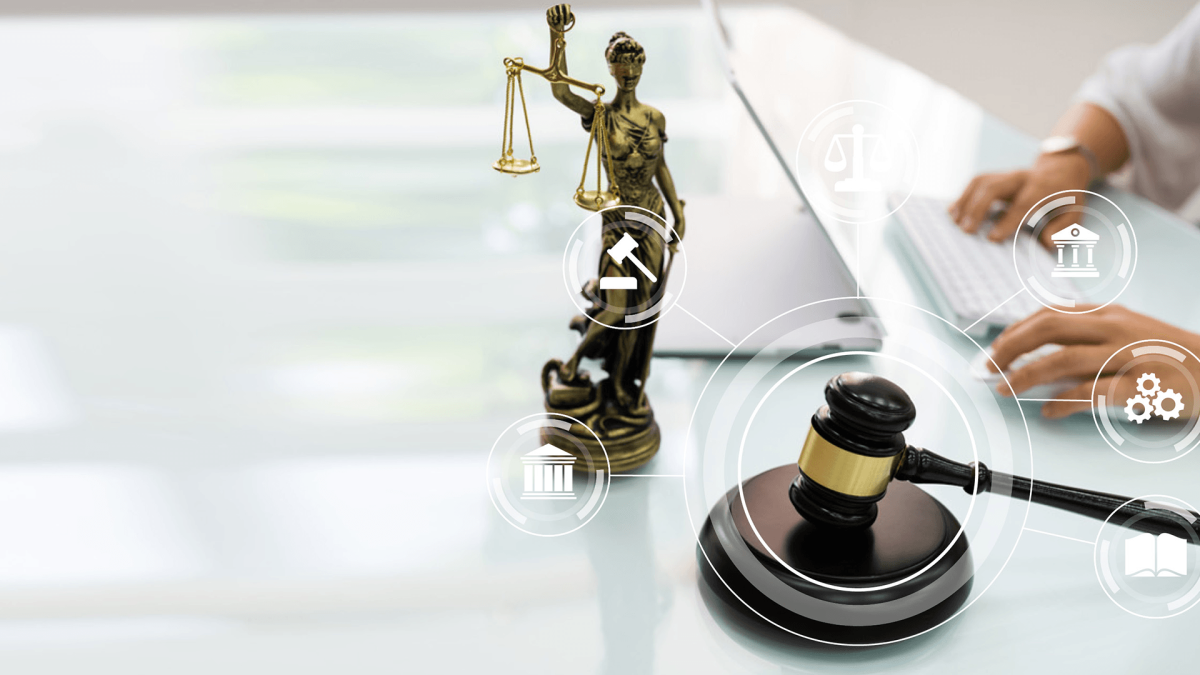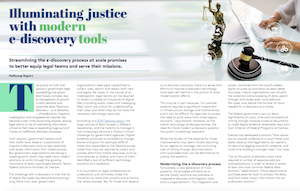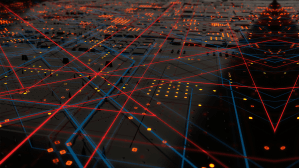- Sponsored
- Modernization
Legacy IT’s costly implications to agency IT and legal teams

Federal legal teams manage a vast number of government investigations, litigation, and congressional inquiries annually that are critical to agency lines of business.ine
However, with the explosion of both personal and corporate electronic records, the discovery process involving digital evidence in these cases has grown increasingly complex for legal teams, as has the risk of overlooking information critical to a case.

Read the full report.
A new generation of e-discovery tools, however, is helping legal teams tackle this increased complexity, according to a new report produced by FedScoop and underwritten by Everlaw. The report highlights the challenges around the electronic discovery — or e-discovery — process, and how both legal and IT teams will benefit from modernizing tools used to assemble and review information from siloed sources.
Currently, the process to review evidence for litigation, investigation and congressional inquiries relies on a patchwork of singular e-discovery tools which is time-consuming and costly to agencies to manage and maintain, according to experts in the report.
One of the main challenges stems from the extensive list of file types that require agencies to maintain legacy systems capable of searching and viewing audio, video, image, document and message files.
The report explores how advanced, cloud-based solutions, like those offered by Everlaw, are specifically designed to help simplify the portfolio of e-discovery tools and significantly enhance the speed and ability for legal teams to search, share and collaborate around critical information on a single platform.
The Everlaw platform, for instance, has one of the most nimble and extensive native file support lists available, capable of working with forensic encase images, Microsoft Office or Google formats, short message formats — including texts and chats — medical imaging files, video game chat platforms and more.
Relying on on-premise systems, on the other hand, requires significant ongoing investments in infrastructure, storage and maintenance, according to Angela Kovach, senior federal solutions architect at Everlaw. As case requirements continue to grow, so do their costs. However, e-discovery processes often get overlooked by agency IT leaders who are typically focused on other modernization projects, she says. And lawyers, who are used to working with these tools, may not appreciate what their missing with today’s more powerful, cloud-based platforms.
“Lawyers frankly may not care how infrastructure is laid out. But they do care that their day-to-day workload is easier,” Kovach says.
She explains that IT and legal departments often have their own communication siloes and may not understand or be aware of time waste, costly maintenance and storage and tool duplication with the current system.
According to the report, the platform integrates e-discovery and litigation tools onto a single platform. Combined with the cloud’s added agility to scale up and down as data needs fluctuate, this means organizations can simplify the collection and processing of data, search through and review even nontraditional file types, and reduce the number of hours needed for e-discovery as a whole.
Everlaw has developed a solution “that allows you to uncover evidence at a much faster and easier pace so that legal teams can spend a lot less time digging around for evidence and more time building a stronger case,” adds John Carr, director of federal programs at Everlaw.
And with the shift to remote-based work, Everlaw’s collaboration functionality helps teams manage cases in real-time through messaging and task management features, as well as simultaneous word processing functionality where attorneys and their teams can work together on documents.
Read more about Everlaw’s FedRAMP authorized cloud-native e-discovery solution and how it can help federal agencies bring greater efficiencies to legal review processes.
This article was produced by FedScoop and sponsored by Everlaw.






